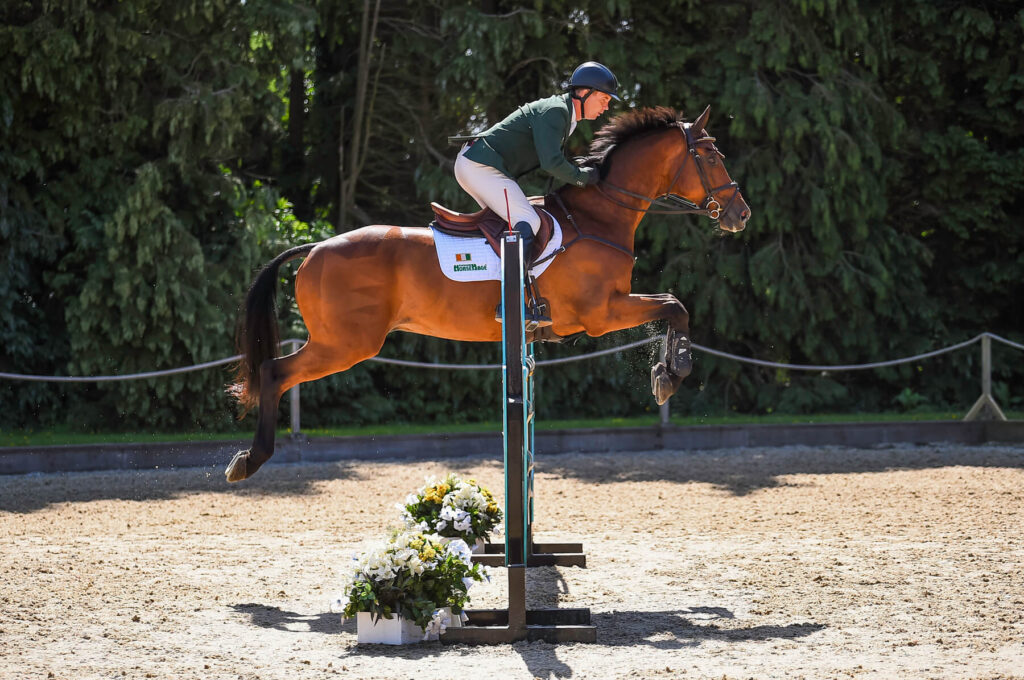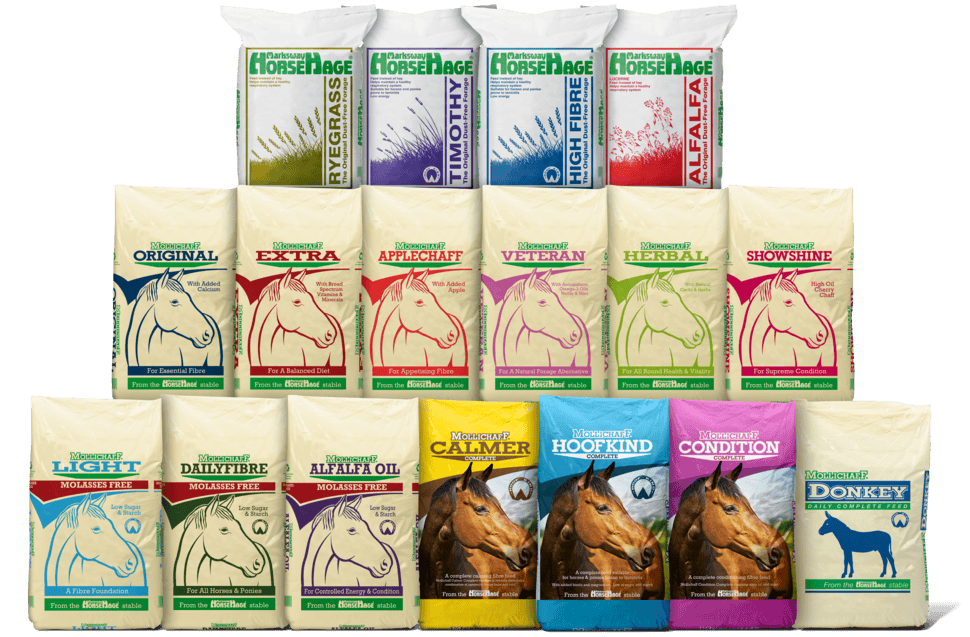
When it comes to feeding competition horses and their diet, there are many important factors to think about. Not only is it important they receive the right amount of essential vitamins, minerals and nutrients, but that their energy and protein requirements are met too.
If this balance is incorrect, it can prove detrimental to the horse’s performance. Too much energy and the horse could become too sharp or fizzy resulting in a loss of both concentration and control or encourage unwanted weight gain. Too little energy and there will be a huge risk of the horse running out of both stamina and sparkle. Insufficient or poor quality protein will hamper muscle repair after work, and too much protein can also impair performance.
Let’s take a look into how to feed competition horses in order to meet all of their nutritional requirements.
Feeding Forage to Competing Horses
Forage should form the largest part of all horse’s diets, and this is no different for a competition horse’s diet. There are a number of factors that need to be considered when choosing forage for competition horses from the wide range available.
One of the most important requirements is for clean, dust- and mould-free forage. There is no compromise for this as dusty, mouldy forage can cause respiratory problems which therefore severely affects the overall health and performance of any horse.
Providing adequate fibre levels is another consideration that needs to be made when choosing forage. Adequate fibre is required to help support their digestive system, both to maintain gut motility and to support the gut microbiome. This plays many key roles in the horse’s health and performance, from energy production to supporting the immune system.
Fibre also helps buffer the natural stomach acidity and reduce the risk of gastric ulcers, common amongst competition horses. As well as this, fibre also helps to combat dehydration and increase water uptake. Forage intakes should typically range between 1.5% and 2.5% of bodyweight, on a dry matter basis.
Finally, the amount of calories in a competing horse’s diet can be impacted by which forage you choose to feed them. Higher calorie forage is often most suited to competition horses to help maintain their weight and provide energy for training and competition. Competing horses and ponies that are good doers should be provided with a low calorie forage option.
Top Tips from HorseHage for Feeding Forage to Competition Horses
- Always choose clean, dust-free forage feeds to maintain respiratory health – which is especially important when travelling. Take a look at our HorseHage product range which is all dust-free and 100% guaranteed.
- Picking a palatable forage is always a winner, so even a stressed or excited horse won’t be able to avoid temptation. We produce different varieties within our range of HorseHage products so there’s plenty to choose from, with varying energy levels.
- Never underestimate the value of good quality forage to provide calories (energy) in the diet of very sharp horses. Our HorseHage range is all produced
,to the highest standards, so you can have peace of mind. - Don’t make sudden changes to the diet on the day of the competition.
- During the summer months or when the horse is sweating a lot, ensure salt or electrolytes are added to the diet to replace the vital electrolytes lost in sweat.
Feeding Concentrate Feeds to Competing Horses
Once you have found the perfect forage, it’s time to decide if your horse requires any additional feed to meet their energy requirements. Good quality forage alone can fulfil the energy requirement of many horses but not all.
The category of competition horses is filled with a variety of Energy type and amount needed will vary with different workloads, for example: a showjumper may require a quick hit of fast release energy, whereas an endurance rider would prefer a slow-release energy to fuel the horse over a long period of time.
Looking further into equine nutrition, horses don’t necessarily use protein as an energy source, rather for growth, renewal and repair within the body. However, it is still an essential component of the competition horse’s diet as the chains of amino acids provide building blocks to improve the horse’s topline/muscle development. If you select a lower energy, lower protein forage, additional good quality protein can be found in feedstuffs such as alfalfa, soya and linseed.
It is essential to include a vitamin and mineral source in any horse’s diet to ensure a balanced diet. This can be in the form of a broad spectrum powdered supplement, pelleted balancer or will be included in a complete competition mix or cubed feed.
When looking for suitable concentrate feeds, its vital you look out for the BETA NOPS certification. This is incredibly important for competition horses as it will minimise the risk of naturally occurring prohibited substances being found in their blood test taken during a competition. A positive blood test can have devastating effects on their career.
All of our HorseHage products are BETA NOPS certified. If you have any questions about how and what you should feed your competition horse, please don’t hesitate to contact us directly on our helpline 01803 527274.


